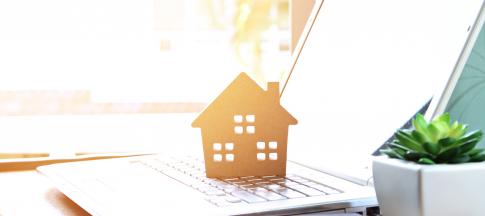
Who’s responsible for keeping a rental property in tip-top condition – the landlord who owns the property, or the tenants who live in it?
Here, we look at a landlord’s legal obligations for fixing and maintaining their property.
Landlord legal obligations for maintenance and repairs
As a landlord, you’re legally responsible for most repairs in your rental property.
Landlord and tenants’ rights are set out in the Landlord and Tenant Act, which covers all leases and tenancies agreed for less than seven years.
The act states that a landlord is responsible for the following repairs:
- electrical wiring
- gas pipes and boilers
- heating and hot water
- chimneys and ventilation
- sinks, baths, toilets, pipes and drains
- your home’s structure and exterior, like walls and external doors
Landlords must also keep the property in ‘good repair’ throughout the tenancy according to the Act.
It also states landlords must give at least 24 hours’ notice to enter a property and visits must be made at a reasonable time of day, unless in an emergency.
Landlord legal obligations for the home’s safety
As part of your landlord duty of care, you must make sure the rental property is fit to live in throughout the tenancy.
As the landlord, you’re responsible for managing:
Damp and mould
The landlord is responsible for damp and sometimes condensation if, for example, it’s caused by poor ventilation.
However, tenants are also responsible for making sure their behaviour doesn’t contribute to condensation, like blocking vents.
Condensation itself isn’t a problem, but it can lead to mould in your property, which can become toxic if untreated.
Rats, mice and other pests
The landlord is responsible for making sure pests such as mice, rats, wasps and hornets don’t get into the home. They’re also responsible dealing with an outbreak.
Your tenants need to tell you about an infestation as soon as possible. You should call the local council or a pest control company immediately so the problem can be dealt with quickly.
Pests are covered by Landlord Emergency Cover, with some exclusions.
Gas safety
You’re legally obliged to arrange annual checks with a Gas Safety engineer.
Electrical installations and appliances
Ensure that wiring, plug sockets and any electrical appliances you provide are safe.
Fire safety
As part of your fire safety responsibilities as a landlord, you must install smoke alarms and carbon monoxide alarms on every floor.
Is a landlord responsible for fences?
It depends on whether any damage to the fence is a safety risk or not.
As the landlord, you’re responsible for the structure of the property, extending to the exterior, with an obligation to protect tenants’ safety and wellbeing.
If your tenant requests repairs to cosmetic damage, however, you’re not obliged to carry those out.
How landlords can reduce the likelihood of dealing with repairs
By taking proactive measures, you could keep your rental property in good condition for longer, reducing the need for repairs.
Regular inspections
It’s a good idea to carry out regular inspections of the property. That way, you can identify potential issues before they become major problems and address small repairs before they escalate.
Tenant education
Make sure your tenants are aware of how to maintain the property. You could provide a handbook or notes when they move in with guidelines on how to use appliances and systems to damage, for example.
Encourage them to report any issues as soon as possible.
Background checks
A thorough tenant screening process can help you find responsible and reliable tenants with a good track record.
Use durable materials
If you’re doing improvements or renovations, use durable materials that don’t require frequent maintenance and are less prone to wear and tear.
Regular maintenance
Make sure essential systems (e.g. plumbing and electrics) are maintained regularly to prevent breakdowns and extend the lifespan of appliances. Setting reminders in your diary could help.
In case of emergency
Provide your tenants with information on what to do in case of emergencies, such as shutting off water valves in the event of a leak. This could minimise damage and the need for extensive repairs.
Landlord insurance
While it’s not compulsory, taking out a comprehensive landlord insurance policy that covers potential damages and repairs could help alleviate the financial burden and give you peace of mind.
Prompt repairs
You’re legally obliged to carry out repairs within a reasonable period. Timely repairs can also prevent minor problems from turning into major ones.
Quality appliances
Invest in quality appliances and fixtures that are less likely to break down or malfunction. While this may involve a higher upfront cost, it’s likely to pay off in terms on reduced maintenance costs in the long term.
Encourage communication
Maintain regular communication with your tenants and encourage them to report issues promptly, providing a convenient way for them to do so.
Tenancy agreements
While tenancy agreements aren’t compulsory, they can be useful to set out additional landlord and tenant responsibilities in a clear way.
For example, you could include a clause in the tenancy agreement stating that the tenants must maintain the garden, or to specify that you’ll carry out repairs if the washing machine breaks.
Tenant responsibilities for repair and maintenance
There are certain things that it is the tenant's responsibility to take care of.
Giving access to the landlord
Tenants need to give you access to the property to inspect it or carry out repairs, as long as you give at least 24 hours’ notice.
Keeping the property well-maintained
Tenants are expected to keep the property in a clean, well-maintained condition and carry out minor maintenance like changing light bulbs.
Paying for repair problems
Tenants should pay for a repair problem that they caused, even if the landlord would normally be responsible. For example, a blocked drain if your tenants haven’t taken care to keep it free of blockages.
Garden maintenance
Tenants are normally responsible for basic garden maintenance, like weeding and mowing the lawn, unless something different is stated in a tenancy agreement.



